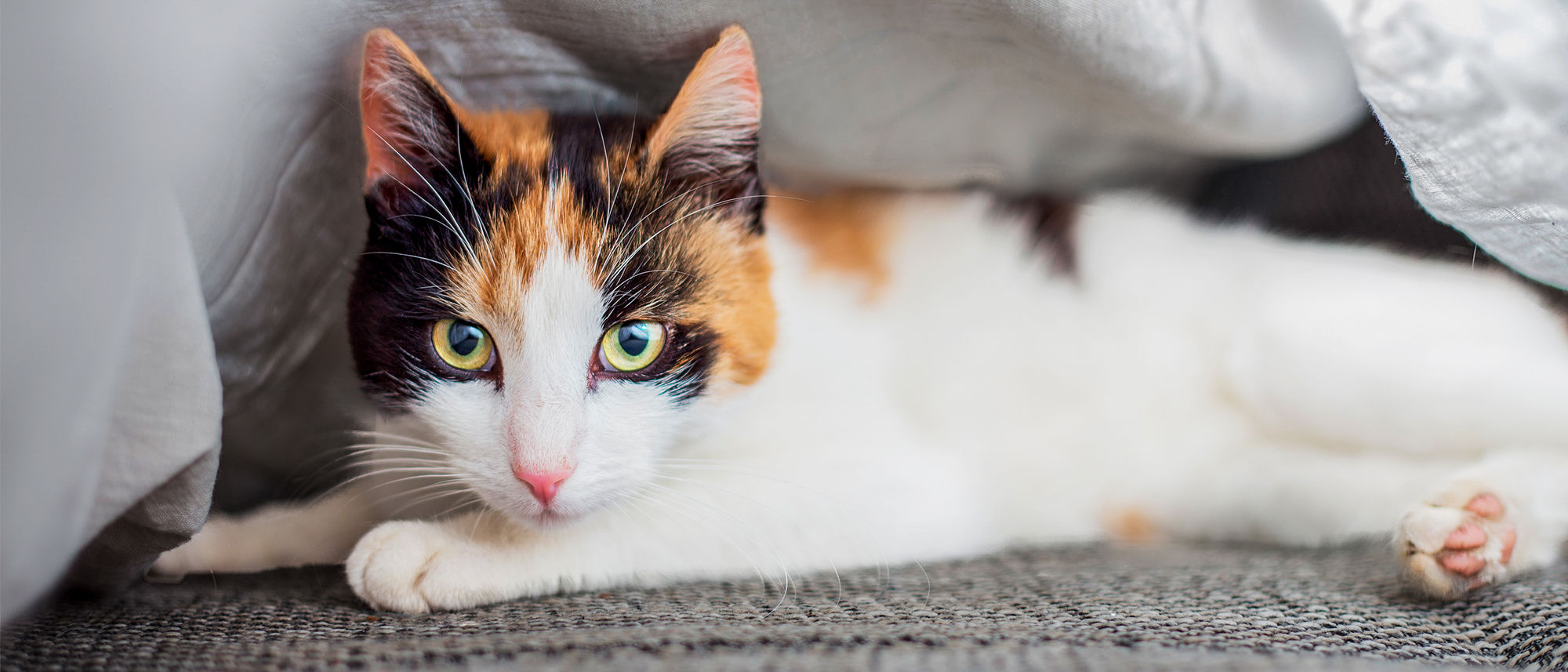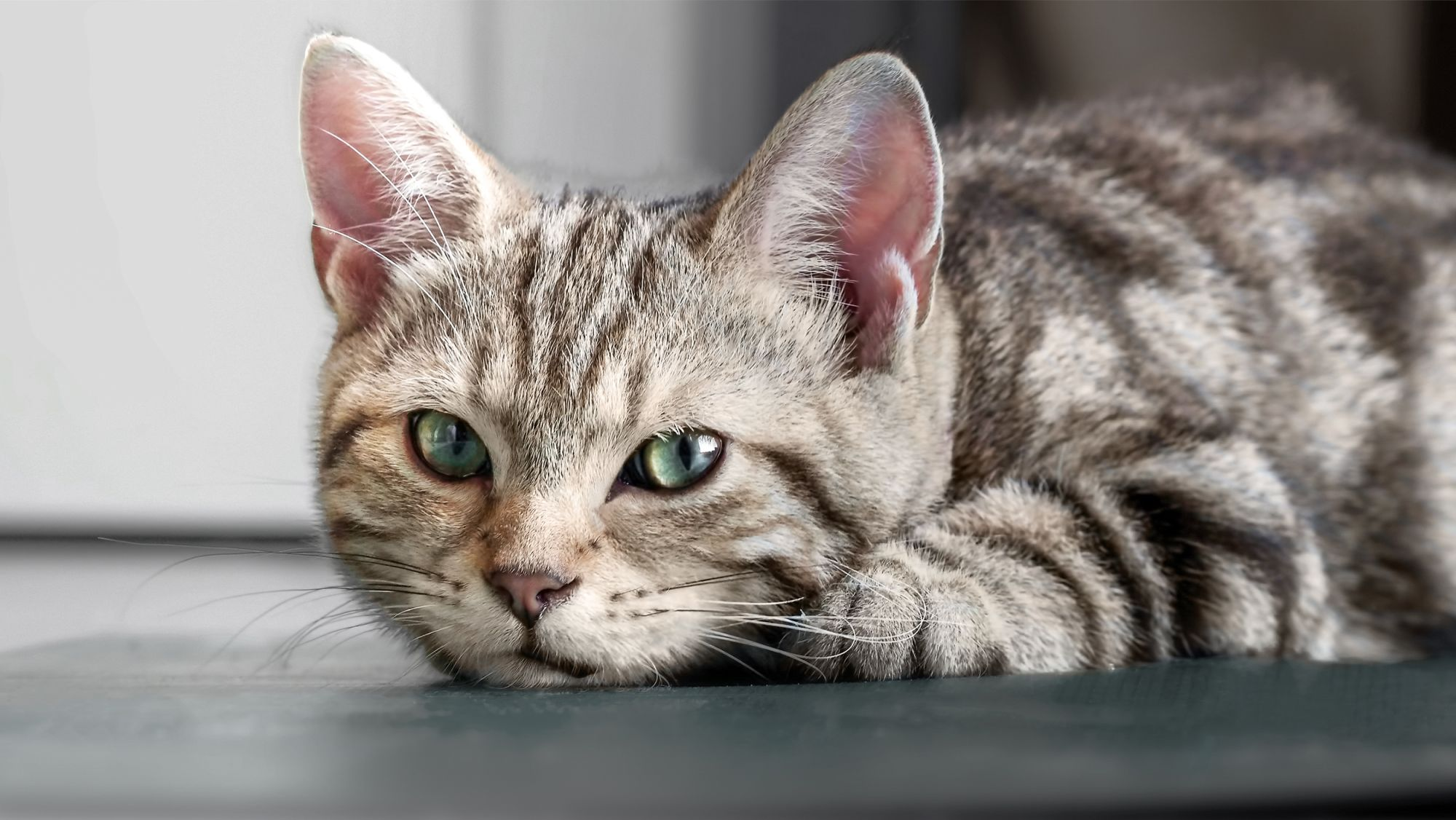How to recognise stress in cats

Has your cat been acting strange? Has it been hiding at the sound of the doorbell, or acting cautious and upset with family members or houseguests? Maybe your cat has been urinating of defecating outside of the litter box. These behaviours can all be signs that your cat is stressed.
What causes stress and anxiety in cats?
One way to determine whether your cat is stressed is to look at a situation from their point of view. While having a houseguest might be exciting for the owner, it’s a new smell, a new person and a disruption in routine for the cat. Other common causes of stress for cats include new pets, new babies, remodelling, construction, storms, or general changes to their routine.
How to recognise stress in cats
Cats exhibit stress in a variety of ways. They may have skin, bladder and/or gastrointestinal issues. They may also urinate outside their litter box, vocalise excessively with growls or hissing, act aggressively toward people or other animals, or groom obsessively. Some cats have even been known to lick themselves bald from stress.

Helping to prevent or alleviate stress in cats
So what can be done to help ease a cat’s stress and anxiety? One thing is to minimise their exposure to unpleasant circumstances. Rather than boarding your cat when you travel, could you use a pet sitter so they can stay where they feel safe?
“Environmental enrichment” is a term used by veterinarians to describe ways to make your house a happier home for your cat. Cats can become bored, which can also lead to behavioural issues. By nature, cats love to hunt, so engage them games whenever you can.
Another idea for reducing feline stress is to add extra litter boxes or feeding stations. This reduces competition in a multi-cat household. Many cats enjoy vertical spaces and may appreciate a cat tree, where they can observe household activities from a safe distance. Water fountains can break the boredom while encouraging your cat to drink more.
There are other ways to help manage your cat’s stress if they are not receptive to the above suggestions. Feline pheromones (chemical substances released in the environment that affect the behaviour of an animal) are available in diffusers and sprays that help relieve stress. Many veterinary clinics use them to help calm their feline patients.
Your vet will be best placed on knowing how to treat a cat with urinary issues. Prescription medications are another possibility your veterinarian may recommend. And for those owners who are not able to give their cats oral medications, prescription diets with anti-stress nutrients are as easy to use as filling the food bowl.
Visit Your Vet
Your veterinarian is the best source of information concerning stress in your cat and will be able to advise you on how to make your trip to the clinic easier. Once the diagnosis of stress is confirmed, you can discuss the possibility of a prescription diet for this condition.
Find a vet
Like & share this page